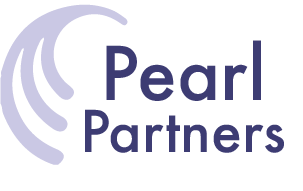Individuals and organizations have one thing in common. We all must carefully balance the time and energy we spend attending to the things that are important, and the things that are urgent.
What's important are the activities that keep you true to your mission. Who you hire or choose to work with, how you contribute your talents, and how you solve the needs of your market are all important things to consider. Your choices about them have long term effects on whether you will achieve your ultimate goals.
What's urgent are the activities that sustain you in the immediate future. How you pay the rent, get the funding, or respond to external changes are all urgent issues that must be resolved along the way. They are like bumps in the road, and your choices about how to manage them can also have long term affects on whether you will achieve your ultimate goals.
We all must attend to important and urgent issues, and how we balance them will determine our ultimate success. For example, an entrepreneur may tweek a business model to ensure their company will get funded. If they tweek it to the point that it is a different business altogether, they have gone too far. It seems that those who go too far are lacking clarity or vision of their ultimate goals. They end up becoming a product of the external forces that they have allowed to shape them, and their reactions are driven by panic and fear more than vision and mission.
Today we are seeing unprescedented panic and fear that can shatter our ability to achieve our economic and social goals – if we let it. This current bump in the road should change the way we do business, but we should not let it change our business. Yes, we need to innovate, and I believe that the innovations that will add the most value will come from those who clearly define what's important – and decide to make it urgent.

Ellen, I believe innovation is ultimately what will overcome the fear and panic and lead us out of this economic funk.
It is fear that causes recessions to deepen, eviscerating demand as consumers refuse to buy. The Great Depression was marked by 4-years of economic decline resulting in a 30% drop in GDP.
The difference this time I believe is consumers are much more accustomed to a heightened pace of innovation and change. Ultimately, companies can and will attract consumers to buy again as new and/or enhanced products and services attract them back to the market. Innovation will have the lead the way.
JD, that’s a great point. Timing and pace are very important factors, and it’s true that consumers have become accustomed to faster innovation cycles. When things slow down a little, it increases the panic level. I’m not sure it’s entirely a bad thing, as I think many companies would do well to slow the pace and really think through what they are doing. This is an interesting point to explore.